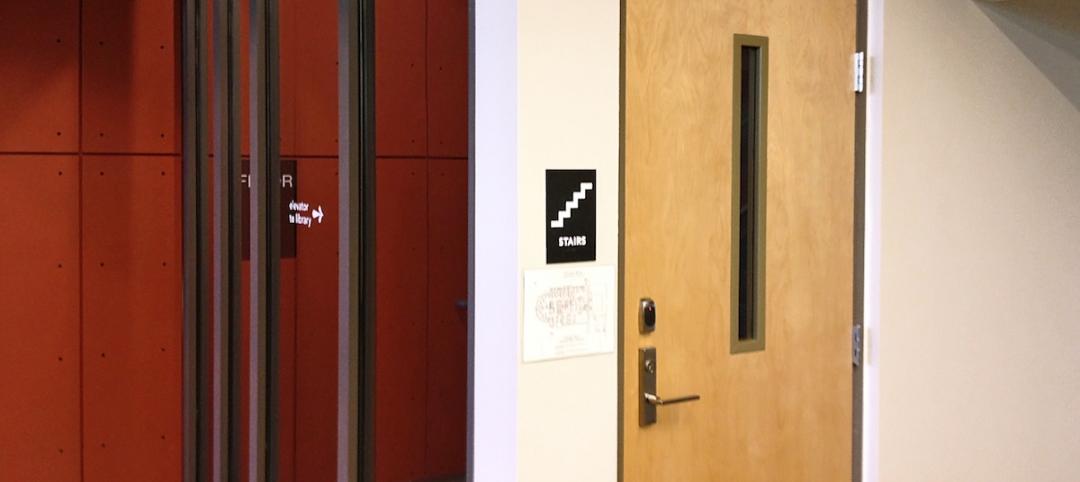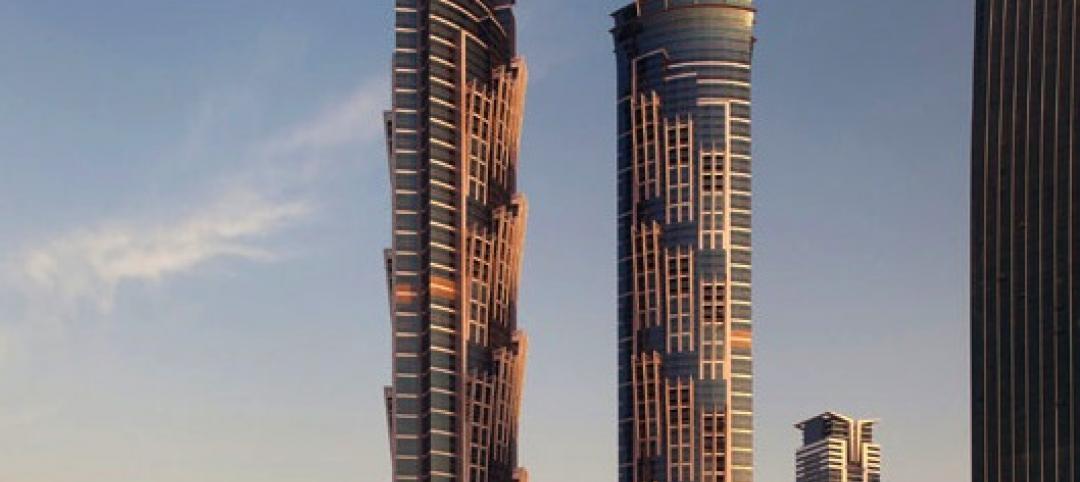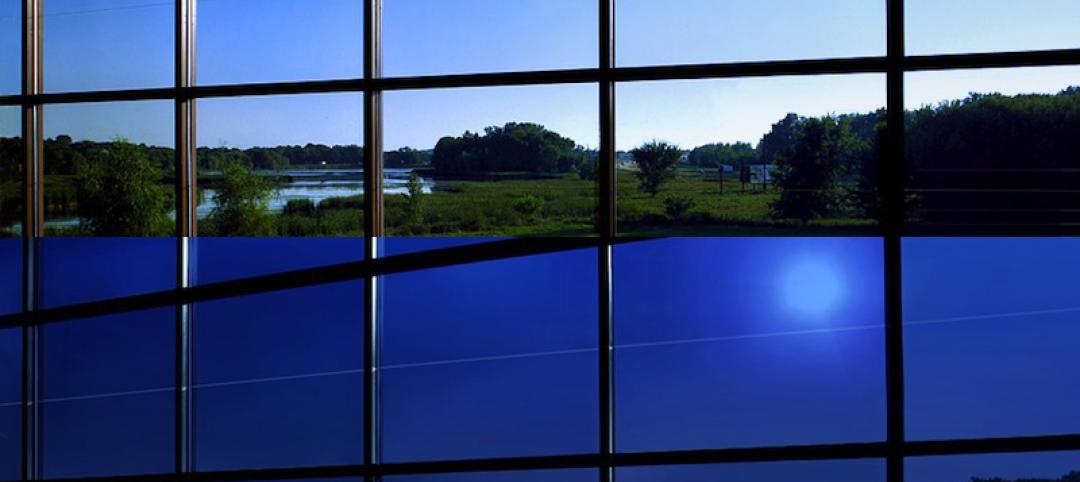Next month, nine remodeled gates inside Terminal 1 at San Francisco International Airport will reopen, with another nine scheduled to reopen in March 2020. The $2.4 billion remodel of this terminal should be completed in 2023.
This 1.2-million-sf net-zero-energy space, designed by Gensler, will include 57,000 sf of dynamic glazing supplied by View, a 12-year-old company based in Milpitas, Calif., that currently has its product in six of the top 15 airports in the U.S.
For example, the Terminal A expansion at Charlotte (N.C.) Douglas Airport included 20,000 sf of dynamic glass, with gate walls that are 40-ft-tall by 50-ft-wide glass walls. “We can do large-format glass that’s critically important to airports,” says Brandon Tinianov, View’s Vice President of Industry Strategy.
Unlike thermochromic glass that responds directly to changes in sunlight and temperature, View’s glass uses nano-layers of electrochromic coating on its surface. When voltage is applied, the glass tints. View’s intelligent system allows the windows to respond to the surrounding environment automatically, to eliminate heat and glare. Tinting of windows in rooms can be controlled by zones.
Tinianov concedes that the upfront cost for View’s glass is a barrier to entry for some clients. That’s why View emphasizes longer-term operating cost benefits, which can be substantial when HVAC systems can be downsized. View claims that its dynamic glass reduces a building’s energy consumption and costs by 18% annually, and can block more than 90% of solar radiation, thereby reducing peak cooling loads by 23%.
Tinianov also points to DFW International Airport in Texas, where View participated in a pilot study to gauge the relationship between passenger experience and revenue. A restaurant near two gates that was underperforming saw its revenue increase, on a year-to-year basis, by 102% after View installed dynamic glass on its eastern façade, says Tinianov.

The waiting area at a gate at DFW International Airport in Texas, with and without tinted glass. Image: Courtesy of View
Since the company’s inception, View has installed its glass in 50 million sf of buildings. Airports represent about 20% of View’s project portfolio. Healthcare and multifamily account for 10% each. And offices represent 60%. “The big value is office towers with thousands of windows,” says Tinianov. This month, the city of San Francisco and the developer Related topped off 49 South Van Ness, a 430,000-sf office building designed by Skidmore, Owings & Merrill that features View’s smart glass.
“We believe that a core role of architecture is improving human performance and enriching the human experience while using as few resources–particularly energy–as possible. The dynamic glass in this building plays a huge part in achieving those goals.” says Mark Schwettmann, SOM’s Design Director.
During the design phase of San Francisco’s Terminal 1 remodel, the building team evaluated six different sustainability measures, and, according to Tinianov, the scenario that included dynamic glass performed the best.
View sees growth potential in promoting dynamic glass for sustainability, health/wellness, and security. Every View installation now includes a smart building platform that consists of power, network, and communication infrastructure. This will allow View to add apps that can help manage a building’s physical and digital security, air quality, and acoustic levels.
Last November View partnered with Microsoft to launch SmartProtect, a window-based security solution that automatically detects glass breakage. The app leverages Microsoft Azure IoT service, Azure Digital Twin.
Related Stories
| Feb 5, 2014
PPG creates new BIM library, adds custom BIM file creation to tool
PPG Industries announced that it has created a new library of building information and modeling (BIM) files, and that architects and specifiers can now use PPG Glass eVIEW to generate custom BIM files for any conceivable PPG glass configuration.
| Feb 5, 2014
7 towers that define the 'skinny skyscraper' boom [slideshow]
Recent advancements in structural design, combined with the loosening of density and zoning requirements, has opened the door for the so-called "superslim skyscraper."
Sponsored | | Jan 30, 2014
Transparent, fire rated stairwell enhances design of renovated Cincinnati Art Museum
When the Cincinnati Art Museum embarked on an $11 million renovation, the architects wanted the entrance and main stair to be as inviting as possible. Transparent, fire rated glazing from SAFTI FIRST was a key component of the design solution.
| Jan 28, 2014
2014 predictions for skyscraper construction: More twisting towers, mega-tall projects, and 'superslim' designs
Experts from the Council on Tall Buildings and Urban Habitat release their 2014 construction forecast for the worldwide high-rise industry.
| Jan 23, 2014
Adrian Smith + Gordon Gill-designed Federation of Korean Industries tower opens in Seoul [slideshow]
The 50-story tower features a unique, angled building-integrated photovoltaic (BIPV) exterior designed to maximize the amount of energy collected.
| Jan 21, 2014
2013: The year of the super-tall skyscraper
Last year was the second-busiest ever in terms of 200-meter-plus building completions, with 73 towers, according to a report by the Council on Tall Buildings and Urban Habitat.
| Dec 10, 2013
16 great solutions for architects, engineers, and contractors
From a crowd-funded smart shovel to a why-didn’t-someone-do-this-sooner scheme for managing traffic in public restrooms, these ideas are noteworthy for creative problem-solving. Here are some of the most intriguing innovations the BD+C community has brought to our attention this year.
| Oct 15, 2013
Sustainable design trends in windows, doors and door hardware [AIA course]
Architects and fenestration experts are looking for windows and doors for their projects that emphasize speed to the project site, a fair price, resilient and sustainable performance, and no callbacks.
| Oct 7, 2013
Nation's first glass curtain wall exterior restored in San Francisco
The Hallidie Building's glass-and-steel skin is generally recognized as the forerunner of today’s curtain wall facilities.
| Sep 19, 2013
6 emerging energy-management glazing technologies
Phase-change materials, electrochromic glass, and building-integrated PVs are among the breakthrough glazing technologies that are taking energy performance to a new level.















